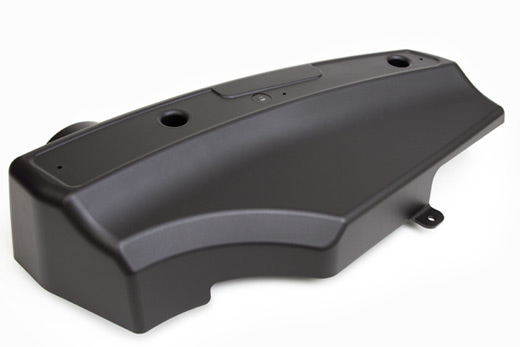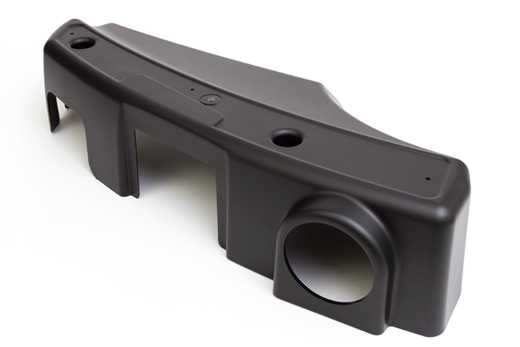Design Consultation
Early Supplier Involvement
The greatest success and return on investment occur with early supplier involvement (ESI). The ESI process is our backbone to engineering and the development of satisfactory plastic parts as it helps us build high quality and low cost into every product
Through proactive communication and collaboration on product specifications, performance, design, materials, and more, our team thoroughly provides attention to detail during the important planning and design phases. We focus a significant amount of time to ESI with every customer; it’s the key driver to delivering a competitive advantage. Early consideration of manufacturing and design for assembly shortens product development time, minimizes development and part costs, reduces rework, and ensures a smooth transition into production for quicker time to market.
Gain a competitive advantage by partnering with Plastic Parts, Inc. on your next project.
Advanced Technology
Our broad range of computer software engineering capabilities includes tools that aid in plastic parts development through electronic design, simulation, validation, and optimization. Plastic Parts, Inc. can assist you at any level of your product design starting with anything from a rough sketch to a prototype. We maintain a strict policy of customer confidentiality at all times.
Computer-Aided Design (CAD)
Detailed product architecture is achieved with various high-tech Computer-Aided Design (CAD) programs. Utilizing SolidWorks modeling, a crude idea can be formed into a working product and streamlined for injection molding and assembly. Computer-aided design provides the ability to see how a product will appear and function before tool construction begins. We have the ability to import files from other programs using feature-generation software.
Computer-Aided Engineering (CAE)
Computer-Aided Engineering (CAE) is the process of solving engineering problems through the use of sophisticated, interactive software. CAE allows us to use mold-flow analysis, a method that utilizes a set of algorithms to define manufacturing processes, offering more computations than is possible by hand, especially when used with optimization systems.
After part designs have been generated, they are transmitted via DNC transmission to one of our state-of-the-art CNC machining centers operated by experienced programmers to accurately transform your product design into reality.
Computer-Aided Manufacturing (CAM)
Use of the SurfCam program provides a seamless integration of the design and manufacturing process. The design programs streamline efforts and avoid costly mistakes translating data.

Material Selection Assistance
Our broad knowledge of engineering materials allows us to assist you in the selection of the best resin materials for your project. From basic polypropylene to engineering-grade ABS and polycarbonate, our team works closely with our resin suppliers to help you determine the most effective material for your product, at the right price.
Our engineering-grade thermoplastics include:
- ABS (Acrylonitrile Butadiene Styrene)
- Polycarbonate
- ABS/Polycarbonate Blends
- Nylon and High-Temperature Nylon
- TPE
- Acrylic
- Polyester / PBT / PET
Composites of all of the above

Top commodity-grade thermoplastic resins include:
- Polystyrene
- Polypropylene
- Polyethylene
- High Impact Polystyrene (HIPS)
- High Density Polyethylene (HDPE)
- High Temperature Nylon
Our experienced team assists in selecting the right material for unique requirements. We can help determine if additives or special coloring will need to be used and will recommend material characteristics such as fire retardant, UV-resistant, or temperature tolerant needs.
Solid Modeling
Our customers count on us for a thorough solid modeling process and on-time mold delivery. Use of solid modeling makes conceptualizing part and mold design a clear and concise science. It provides a link between designer and toolmaker; ensuring both are working from the same detailed project plans. For our customers, it saves time and lowers costs by eliminating trial and error.
Using the latest CAD technology and software, our experienced mold designers and engineers create solid models for plastic injection molded parts, molds, and downstream manufacturing automation. Using SolidWorks, MoldWorks, SplitWorks, and other programs, all molds are designed and built to SPI (Society of the Plastics Industry) standards using in-house tooling and state-of-the-art injection molds and technology. We can accept and adjust 2D and 3D model files from other software applications.
Mold Flow Analysis
Mold flow analysis, a virtual simulation tool for plastic injection molding, is another important step in avoiding costly mistakes. Mold flow analysis aids in refining the part and tool design based on the predicted mold environment. It also avoids potential manufacturing defects and helps speed innovative products to market faster.
Using mold flow software in a CAD environment allows computer-generated experimentation of a solid model to explore what happens during the injection cycle in the mold. This powerful software tool can help develop and test single- or multi-cavity runner systems prior to completion of the mold design stage.
At Plastic Parts, Inc., we are experienced in evaluating plastic injection molding design performance including predicting potential problems and interpreting risks. Our customers value this attention to detail during the critical design phase.


